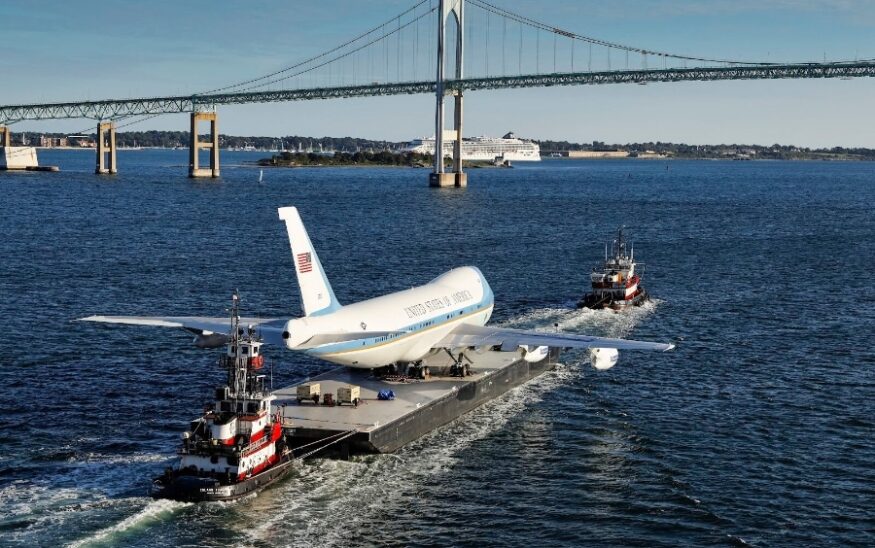
In 1913, two brothers started a marine transportation company, putting down roots in a Younges Island post office. With no bridges at the time, the team became the hub for mail, produce and machinery delivery.
Johnson Stevens is the fourth generation to own the company, his great grandfather and great uncle being the original proprietors of Stevens Towing. During the generation of ownership before him, his father bought out the ownership portions of the other family members and purchased the company’s first tugboat.
Having once focused on the Sea Islands of Charleston such as Johns Island, James Island and Edisto Island, Stevens Towing has spent the past 112 years growing into barges and tugboats operating all along the U.S. coast.
“We don’t do the high-volume stuff you see every day in the (South Carolina) ports,” Stevens said. “But there’s a lot more that flies under radar in the state that we’re attached to that makes a big difference.”
Multiple generations of local families have worked at Steven’s Towing, and as the region grew and bridges started being developed, the company found ways to stay useful and relevant. While managing its own fleet, the towing company had people coming in to fix their boats as well.
The Stevens Towing website lists cargo transportation, rentals, towing and tugging or barging as its services. For Stevens, there isn’t a boat service he isn’t willing to learn and add to the family portfolio.
Stevens said for the boating industry in the Gulf of Mexico and the Northeast, there is enough volume to thrive with only one primary service. In the Southeast, the lower maritime transportation of goods means companies like Stevens Towing have to be more flexible.
Stevens Towing has contracts with large local factories like Nucor Steel, Siemens and Mitsubishi, benefiting from having the second largest floating crane on the East Coast, Stevens said.
Having had such a longstanding presence in the Lowcountry, Stevens Towing has employees who have been there for nearly 50 years. Stevens said the family culture of the workplace ranges from dinner at each other’s houses to adjusting performance evaluation according to hardships in each person’s home life.
“You work for them, to an extent, you have to earn their respect.” Stevens said. “You have to know when you’re in the trenches together, they know you’re right there with them. That’s what’s made us survive 112 years.”
Like many facilities in the area, Stevens Towing offers an apprenticeship for local high school students to come to train in both the maritime industry, as well as life. Stevens said one of the students who ended up working with the company just purchased his first house at 24-years-old under Stevens’ guidance.
“It’s fun to see the different people as you teach them the trade, they continue with and you can see how far they can take it,” Johnson Stevens said. “They’re kind of part of the family.”
Stevens Towing has about 75 people working on tugboats along the United States coast with another 100 in the shipyard.
“If you know how to work, you love a challenge and you have the right mindset to where you know the team aspect or are not afraid of failing a couple times, usually that person can learn anything,” Stevens said.
Fill in the form to receive the latest news about Stevens Towing on your e-mail!